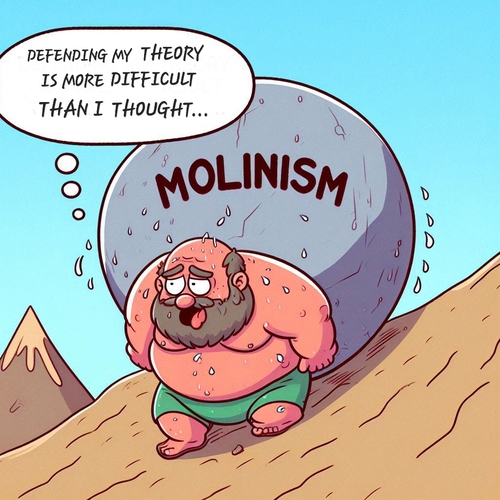The Reformation’s Five ‘Solas’: Cornerstones of Salvation
IMAGE CAPTION: When it all began: The glorious Reformation began with Martin Luther nailing his 95 Theses to a cathedral door in 1517
Reclaiming the Gospel
The Protestant Reformation’s Five ‘Solas’: The Reformation was a monumental movement that reshaped Western Christianity and sent ripples across the world. At its heart was a daring challenge to the flawed doctrines and authoritarian abuses of the Roman Catholic Church. Through their united efforts, the Reformers reclaimed the gospel’s pure, glorious doctrine of salvation by grace alone.
Led by stalwarts like Martin Luther and John Calvin, the Reformers with their rallying cry of “Sola Scriptura” (Scripture Alone) resounded the call to make the Bible the supreme authority for faith and practice in the church. No longer would human traditions and papal decrees usurp God’s inerrant, complete Word. While not explicitly formulated together during the Reformation, the Solas were later distilled from the Reformers’ collective teachings, reflecting the convictions of theologians like Huldrych Zwingli, Philip Melanchthon, John Knox, Thomas Cranmer and William Tyndale.
Crystallizing this biblical emphasis were the five Latin Solas (meaning “alone”)—rays emanating the guiding light of truth with pinpoint precision. These five Solas formed the bedrock truths recovering the apostolic gospel of salvation. Let us explore what they are and why they remain immensely vital:
Sola Scriptura (Scripture Alone)
With prophetic boldness, the Reformers rejected any authority being placed over or equated to the Bible. Scripture alone reigned as the inspired, sufficient and infallible source of God’s special revelation to humanity (2 Timothy 3:16-17). Not Scripture plus tradition or papal proclamations, but Scripture alone held the supreme, binding truth about salvation.
Sola Gratia (Grace Alone)
The Bible message rang out unequivocally—humanity is radically depraved, unable to earn favour with God through any works or merits of our own (Ephesians 2:8-9). Against the Catholic system of indulgences and obedience-based righteousness, rings out this message that fallen man can find salvation by God’s grace alone through His unmerited favour.
Sola Fide (Faith Alone)
How then do we receive this amazing grace? The Reformers upheld the biblical truth it is through faith alone in Christ’s finished work, not our feeble efforts (Romans 3:28). Real faith isn’t mere intellectual assent but a repentant, spiritual rebirth that leads to transformation (James 2:17). Yet even this faith isn’t our own doing but a gracious gift from God (Ephesians 2:8).
Solus Christus (Christ Alone)
At the blazing centre of this theological reinvigoration was the supreme truth that salvation is found in Christ alone as the singular Mediator between God and man (1 Timothy 2:5). His death alone pleases the Father and propitiates for sins. No human priests, saints or Mary can offer salvific mediation. Christ alone is the Way, Truth and Life (John 14:6).
Soli Deo Gloria (Glory to God Alone)
Ultimately, God alone deserves all glory for the wondrous drama and work of redemption. From predestination to justification to sanctification to glorification, it’s all about magnifying His infinite majesty, wisdom, grace and power in radically restoring fallen humanity (Romans 11:36). Salvation exalts and elevates God alone as the Creator, Sustainer and Redeemer.
The Reformation’s Five ‘Solas’ weren’t just catchy phrases. They were powerful truths that stripped away years of man-made rules in the church.
Today, these principles still matter. They remind us that salvation comes from God’s kindness through Jesus. Our job is to trust Him, follow the Bible, and live for God’s glory.
If you feel weighed down by religious rules or traditions, let the Reformation’s Five ‘Solas’ light your way. They show us that salvation is God’s amazing gift from start to finish!
In a world where it’s easy to lose sight of what’s important, the Reformation’s Five ‘Solas’ keep us focused on the heart of the Christian faith. They’re like five bright flames, keeping the true message of the gospel burning strong.
Editor's Pick

Did Joseph Sin in Marrying an Egyptian?
It’s a troubling question: if God forbade His people from foreign alliances, why was Joseph’s marriage to an Egyptian not [...]

Jacob’s Ladder: How Jesus Bridges Earth and Heaven
THE GOSPEL IN GENESIS 28... A stairway to heaven—humanity has always dreamt of one since the Fall. Every religion offers [...]

In the World But Not Of It: What John 17:14-16 Really Means
Scrolling through social media, we’re bombarded by voices shouting for our allegiance—politics, trends, ideologies. As Christians, we feel the tension: [...]

Is Molinism Biblical? Reformed Challenges to Middle Knowledge
In a world craving autonomy, does God truly reign supreme, or does He negotiate with human choices? The question lies [...]

Does the Bible Teach Purgatory? Scripture’s Clear Answer
Imagine standing at the very edge of eternity, wondering if the soul requires further cleansing before you enter heaven's gates. [...]

David Danced Before the Lord—Why Don’t Reformed Churches?
When we read about King David leaping and dancing before the Lord “with all his might” (2 Samuel 6:14), a [...]

Faithful to the Pattern: Why Paul Reserves Ordination for Men
Few topics in contemporary Christianity generate more tension than women’s ordination. This question touches real lives, genuine callings, and deeply [...]

‘Flee Sexual Sin’: Why Does Paul Single This Sin Out?
When the apostle Paul writes to the Corinthian church, he doesn’t tell them to simply avoid sexual immorality or resist [...]

Does Denying God’s Sovereignty Mean Denying the Gospel?
RC Sproul once warned denying God’s sovereignty “eviscerates” grace—a strong word meaning to gut or disembowel something, leaving only an [...]

Why Christians Fast: The Biblical Discipline’s Very Real Rewards
Why would Christians, who rejoice in the good gifts of food and fellowship, deliberately choose to go without? Isn’t fasting [...]
SUPPORT US:
Feel the Holy Spirit's gentle nudge to partner with us?
Donate Online:
Account Name: TRUTHS TO DIE FOR FOUNDATION
Account Number: 10243565459
Bank IFSC: IDFB0043391
Bank Name: IDFC FIRST BANK






